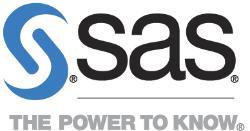.jpg)
Applied Artificial Intelligence and Data Analytics
MSc
- Duration
- Start date
- Location
Suitable for applications.
Learning and assessment
Learning will be directed, supported, and reinforced through a combination of lectures, tutorials, seminars, labs, demonstration, project supervision, as well as through personal research and directed and self-directed study. These activities will all be further supported through face-to-face and online learning environment, within a blended-learning framework.
The programme will aim to integrate applied and theoretical knowledge with assessment processes that test both knowledge of the discipline and understanding of its application and limitations. To facilitate learning, lectures, tutorials, and seminars will be grounded in active and collaborative learning and will typically utilise case studies and problem-solving exercises. Sessions may be delivered weekly or in blocks. Small group sessions will use case studies and problem-solving exercises, with oral feedback given in class. Lab sessions will complement formal lectures and tutorials and will be an opportunity for students to do some hands-on-system work and focus on developing and practising both coding analytics skills and coding-free analytics skills. Students will be guided to suitable primary and secondary (open access) data sources and be required to conduct research, analysis, and presentation exercises. Resources to support the teaching and learning activity will be provided on the University’s virtual learning environment.
The programme is formatively and summatively assessed by a mixture of assessed coursework, case studies, group projects and multimedia presentations.
Study support
You'll be allocated a Personal Academic Tutor, who will provide you with personal guidance and support.
Module leaders and tutors will be accessible, providing office hours and appointments in order to support your learning beyond class contact.
The Effective Learning Service (ELS) is a dedicated facility within the Faculty of Management, Law and Social Sciences, established to support our students to maximise their academic learning (e.g assignments and examinations), as well as help overseas students adapt quickly to UK academic requirements.
The ELS provides a huge range of services, including various workshops run during term time, 1-1 consultations and vast printed and online resources to cater for every possible development area.
These are in addition to the wide range of student support that is offered by the University of Bradford at City Campus.
Research
The programme will be part of the Business Analytics, Circular Economy and Supply Chain (BACES) Research Centre at the School of Management. The centre brings together enthusiastic and ambitious academics, who will also deliver this programme.




